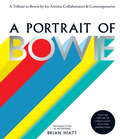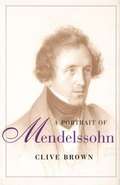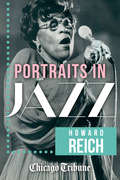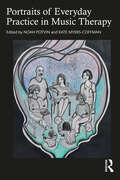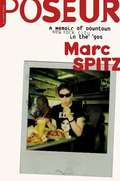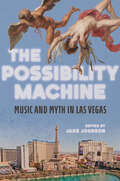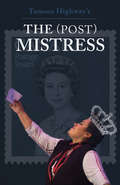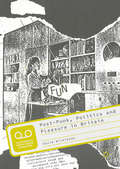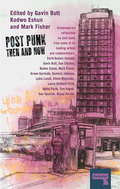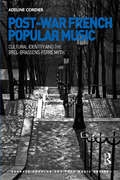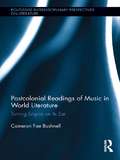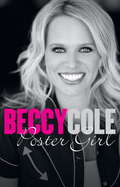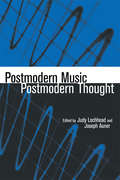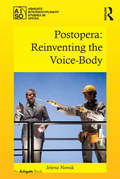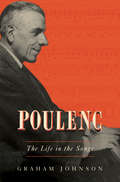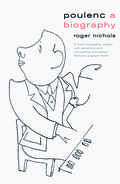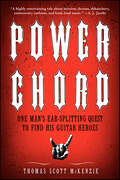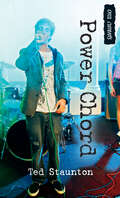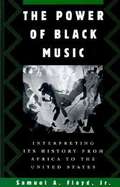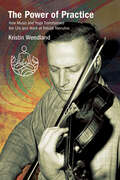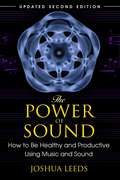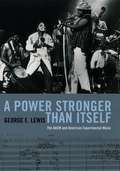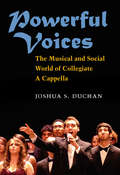- Table View
- List View
A Portrait of Bowie: A tribute to Bowie by his artistic collaborators and contemporaries
by Brian HiattHIS LIFE WAS A WORK OF ARTNow, artists and musicians who worked with David Bowie during his lifetime - or who were his contemporaries - pay tribute to the icon through their own words on what it was like to work in collaboration with a man whose fluid artistic genius repeatedly broke boundaries, right up until his death. Alongside these text tributes are 40 stunning illustrative and photographic portraits of Bowie throughout his career. The contributing artists and photographers include (alphabetically): Edward Bell, Derek Boshier, Anton Corbijn, Kevin Cummins, Chuck Connelly, Chalkie Davies, Stephen Finer, Greg Gorman, Derry Moore, Terry O'Neill, Mick Rock, Masayoshi Sukita, George Underwood, Justin de Villeneuve and more. Alongside these remarkable portraits are insightful, personal written pieces by his contemporaries, and musicians and artists who worked closely with Bowie, including Zachary Alford, Carlos Alomar, Toni Basil, Gail Ann Dorsey, Mike Garson, Dana Gillespie, Debbie Harry and Chris Stein, Cyndi Lauper, and Nile Rodgers, among others. The book is curated by Brian Hiatt, of Rolling Stone magazine, as General Editor.** Newly revised and improved ebook edition, optimized for both small- and large-screen devices **
A Portrait of Mendelssohn
by Clive BrownClive Brown draws a different picture of Felix Mendelssohn's personality and work.
Portraits in Jazz: 80 Profiles Of Jazz Legends, Renegades And Revolutionaries
by Howard Reich Chicago TribuneA collection of articles on and interviews with jazz greats Jelly Roll Morton, Louis Armstrong, Billie Holiday, Wynton Marsalis, Miles Davis, and others.Howard Reich has reported on jazz for the Chicago Tribune for almost four decades, and in this time, he has met musicians both celebrated and obscure. From his exclusive interviews with Frank Sinatra, Tony Bennett, Lena Horne, and Ella Fitzgerald, to profiles of the early masters like Louis Armstrong, Duke Ellington, and Billie Holiday, this book illustrates Reich’s deep understanding of the performances, recordings, and cultural legacies of these jazz masters.This book, comprising Reich’s award-winning Chicago Tribune articles, shows readers his unmatched critical insight and unrivaled access to the diverse range of jazz musicians the world over, including the little-known artists who, while never in the national spotlight, were nonetheless instrumental to the evolution of jazz. Divided thematically, Portraits in Jazz is a journey from the time of jazz music’s originators, great singers, and early masters through to its courageous standouts, game changers, and regional influencers from Chicago to Cuba and across the globe.Reich, himself a piano performance major at Northwestern University, says in the introduction that studying theory and history are essential to understanding jazz’s inner-workings. But these portraits weren’t created as academic theses or history-book lessons. They are on-the-spot, in the heat of the moment questions of its greatest practitioners, articles and essays in the here and now, taking readers one step closer to the meaning of sound.
Portraits of Everyday Practice in Music Therapy
by Noah Potvin Kate Myers-CoffmanPortraits of Everyday Practice in Music Therapy is an edited volume of case studies providing music therapy students and new professionals with critical reflections on everyday clinical practice across a variety of treatment settings, theories, approaches, and cultural contexts. These case studies articulate the important foundational work occurring around clinical breakthroughs to illustrate less of what music therapy could be given extraordinary circumstances and more of what music therapy frequently is given realistic circumstances. Additionally, each author explores the impacts of cultural values, expectations, and roles on clinical contexts through examinations of their sociocultural identities and how they intersected with those with whom they worked. Discussion prompts at the end of chapters help readers engage in similar reflective practices and sustain engagement with introduced concepts and ideas. By providing ecological real-world contexts for practice and culturally reflexive lenses through which to understand how therapeutic processes evolved, music therapy students and professionals can be better prepared for the authenticity and complexity of everyday clinical work.
Poseur: A Memoir of Downtown New York City in the '90s
by Marc SpitzMarc Spitz assumed that if he lived like his literary and rock 'n' roll heroes, he would become a great artist, too. He conveniently overlooked the fact that many of them died young, broke, and miserable. In his candid, wistful, touching, and hilarious memoir, Poseur, the music journalist, playwright, author, and blogger recounts his misspent years as a suburban kid searching for authenticity, dangerous fun, and druggy, downtown glory: first during New York's last era of risk and edge, the pre-gentrification '90s, and finally as a flamboyant and notorious rock writer, partying and posing during the music industry's heady, decadent last gasp.Part profane, confidential tell-all and part sweetly frank coming-of-age tale, this dirty, witty memoir finds Spitz careening through the scene, meeting and sometimes clashing with cultural icons like Courtney Love, Jeff Buckley, Rivers Cuomo of Weezer, Chloë Sevigny, Kim Deal, The Dandy Warhols, Guns N' Roses, Ryan Adams, Paul Rudd, Coldplay, Pavement, Peter Dinklage, Julie Bowen, The Strokes, Trent Reznor, Chuck Klosterman, Interpol, and Franz Ferdinand, as well as meeting heroes like Allen Ginsberg, Shirley Clarke, Joe Strummer, and Morrissey. Along the way he finds literary guru Gordon Lish is a long-lost relative, and erstwhile pal and sensation JT LeRoy is an even bigger poseur.Spitz refuses to give up the romantic ghost until a post-9/11 breakdown and an improbable new love (fellow music writer Lizzy Goodman) finally help him strike the hardest pose of all: his true self.
Positionen.Entwicklungen.Erfahrungen – 10 Jahre Junge Opern Rhein-Ruhr: Dokumentation der Konferenz zum Festival „Auf die Ohren, fertig, los!“
by Christiane Plank-Baldauf Merle FahrholzHören, Sehen, Staunen – in den deutschsprachigen Opernhäusern kann junges Publikum seit über zehn Jahren viel entdecken! Die vorliegende Dokumentation fasst die Ergebnisse der Konferenz „Auf die Ohren, fertig los!“ der Jungen Opern Rhein-Ruhr zusammen und gibt Einblicke in künstlerische Produktionsbedingungen, ästhetische Handschriften, Vermittlungsarbeit, institutionelle Rahmenbedingungen und fokussiert aktuelle Uraufführungen des Kooperationsverbunds. Die Ergebnisse der Konferenz werden zudem in einen übergreifenden Kontext gesellschafts- und kulturpolitischer Entwicklungen im Musiktheater für junges Publikum im deutschsprachigen Raum gestellt.
The Possibility Machine: Music and Myth in Las Vegas (Music in American Life)
by Celine Ayala Kirstin Bews Laura Dallman Joanna Dee Das James Deaville Robert Fink Pheaross Graham Jessica A Holmes Maddie House-Tuck Jake Johnson Kelly Kessler Michael Kinney Carlo Lanfossi Jason Leddington Janis McKay Sam Murray Louis Niebur Lynda Paul Arianne Johnson Quinn Michael M Reinhard Laura Risk Cassaundra Rodriguez Arreanna Rostosky Brian F WrightSingular and star-studded writings on America’s neon-lit playground At once a Technicolor wonderland and the embodiment of American mythology, Las Vegas exists at the Ground Zero of a reverence for risk-taking and the transformative power of a winning hand. Jake Johnson edits a collection of short essays and flash ideas that probes how music-making and soundscapes shape the City of Second Chances. Treating topics ranging from Cher to Cirque de Soleil, the contributors delve into how music and musicians factored in the early development of Vegas’s image; the role of local communities of musicians and Strip mainstays in sustaining tensions between belief and disbelief; the ways aging showroom stars provide a sense of timelessness that inoculates visitors against the outside world; the link connecting fantasies of sexual prowess and democracy with the musical values of Liberace and others; considerations of how musicians and establishments gambled with identity and opened the door for audience members to explore Sin City–only versions of themselves; and the echoes and energy generated by the idea of Las Vegas as it travels across the country. Contributors: Celine Ayala, Kirstin Bews, Laura Dallman, Joanna Dee Das, James Deaville, Robert Fink, Pheaross Graham, Jessica A. Holmes, Maddie House-Tuck, Jake Johnson, Kelly Kessler, Michael Kinney, Carlo Lanfossi, Jason Leddington, Janis McKay, Sam Murray, Louis Niebur, Lynda Paul, Arianne Johnson Quinn, Michael M. Reinhard, Laura Risk, Cassaundra Rodriguez, Arreanna Rostosky, and Brian F. Wright
The (Post) Mistress
by Tomson HighwayMarie-Louise Painchaud has worked for thirty-five years as post mistress at the post office in Lovely, a francophone Canadian village where she has come to know every client whose mail she handles. The (Post) Mistress is a rollicking, emotional rollercoaster-ride in the form of a one-woman musical, with elements of jazz, Berlin cabaret, French café music, and Brazilian samba.
Post-Punk, Politics and Pleasure in Britain
by David WilkinsonAs the Sex Pistols were breaking up, Britain was entering a new era. Punk's filth and fury had burned brightly and briefly; soon a new underground offered a more sustained and constructive challenge. As future-focused, independently released singles appeared in the wake of the Sex Pistols, there were high hopes in magazines like NME and the DIY fanzine media spawned by punk. Post-Punk, Politics and Pleasure in Britain explores how post-punk's politics developed into the 1980s. Illustrating that the movement's monochrome gloom was illuminated by residual flickers of countercultural utopianism, it situates post-punk in the ideological crossfire of a key political struggle of the era: a battle over pleasure and freedom between emerging Thatcherism and libertarian, feminist and countercultural movements dating back to the post-war New Left. Case studies on bands including Gang of Four, The Fall and the Slits and labels like Rough Trade move sensitively between close reading, historical context and analysis of who made post-punk and how it was produced and mediated. The book examines, too, how the struggles of post-punk resonate down to the present.
Post-Punk Then and Now
by Mark Fisher Green Gartside Kodwo Eshun Sue Clayton Gavin ButtWhat were the conditions of possibility for art and music-making before the era of neoliberal capitalism? What role did punk play in turning artists to experiment with popular music in the late 1970s and early 1980s? And why does the art and music of these times seem so newly pertinent to our political present, despite the seeming remoteness of its historical moment? Focusing upon the production of post-punk art, film, music, and publishing, this book offers new perspectives on an overlooked period of cultural activity, and probes the lessons that might be learnt from history for artists and musicians working under 21st century conditions of austerity. Contemporary reflections by those who shaped avant-garde and contestatory culture in the UK, US, Brazil and Poland in the 1970s and 1980s. Alongside these are contributions by contemporary artists, curators and scholars that provide critical perspectives on post-punk then, and its generative relation to the aesthetics and politics of cultural production today.
Post-War French Popular Music: Cultural Identity and the Brel-Brassens-Ferré Myth (Ashgate Popular and Folk Music Series)
by Adeline CordierJacques Brel, Georges Brassens and Léo Ferré are three emblematic figures of post-war French popular music who have been constantly associated with each other by the public and the media. They have been described as the epitome of chanson, and of 'Frenchness'. But there is more to the trio than a musical trinity: this new study examines the factors of cultural and national identity that have held together the myth of the trio since its creation. This book identifies the combination of cultural and historical circumstances from which the works of these three singers emerged. It presents an innovative analysis of the correlation between this iconic trio and the evolution of national myths that nurtured the cultural aspirations of post-war French society. It explores the ways in which Brel, Brassens and Ferré embody the myth of the left-wing intellectual and of the authentic 'Gaul' spirit, and it discusses the ambiguous attitude of post-war French society towards gender relations. The book takes an original look at the trio by demonstrating how it illustrates the popular representation of a key issue of French national identity: the paradoxical aspiration to both revolution and the maintenance of the status quo.
Postcolonial Readings of Music in World Literature (Routledge Interdisciplinary Perspectives on Literature)
by Cameron Fae BushnellThis book reads representations of Western music in literary texts to reveal the ways in which artifacts of imperial culture function within contemporary world literature. Bushnell argues that Western music’s conventions for performance, composition, and listening, established during the colonial period, persist in postcolonial thought and practice. Music from the Baroque, Classical, and Romantic periods (Bach through Brahms) coincides with the rise of colonialism, and Western music contains imperial attitudes and values embedded within its conventions, standards, and rules. The book focuses on the culture of classical music as reflected in the worlds of characters and texts and contends that its effects outlast the historical significance of the real composers, pieces, styles, and forms. Through examples by authors such as McEwan, Vikram Seth, Bernard MacLaverty, Chang-rae Lee, and J.M. Coetzee, the book demonstrates how Western music enters narrative as both acts of history and as structures of analogy that suggest subject positions, human relations, and political activity that, in turn, describes a postcolonial condition. The uses to which Western music is put in each literary text reveals how European art music of the seventeenth through the nineteenth centuries is read and misread by postcolonial generations, exposing mostly hidden cultural structures that influence our contemporary understandings of social relations and hierarchies, norms for resolution and for assigning significance, and standards of propriety. The book presents strategies for thinking anew about the persistence of cultural imperialism, reading Western music simultaneously as representative of imperial, cultural dominance and as suggestive of resistant structures, forms, and practices that challenge the imperial hegemony.
Poster Girl
by Beccy ColeBeccy Cole's inspirational memoir from the heart of Australian country music.Beccy Cole has country music in her blood. Daughter of a country music star, Carole Sturtzel, she is one of the most popular country singer-songwriters in Australia today. This is the story of her life - in her own words.At fourteen, Beccy was performing in her mother's group, Wild Oats. By her late teens, Beccy had teamed up with the Dead Ringer Band - Kasey Chambers' family band - and had attracted the attention of the country music world by winning the Star Maker quest: the same award that started the careers of Keith Urban, Lee Kernaghan, James Blundell and Gina Jeffreys. It was just the first of many awards and accolades for this multitalented woman with a big heart.With refreshing candour, Beccy shares her story: leaving everything she knew to pursue her dream, making a name for herself with her own band; her marriage and motherhood; her subsequent divorce, becoming a single mother and maintaining the nurturing love of family. Performing for the Australian troops in Afghanistan. Coming out, and what it has meant for her and her fans. Taking control of her own life - and finding love.Heartfelt and honest, Poster Girl is the inspirational memoir of a strong woman who epitomises the authentic spirit of country music, and of Australia.
Postmodern Music/Postmodern Thought (Studies In Contemporary Music And Culture Ser. #Vol. 4)
by Judy Lochhead Joseph AunerWhat is postmodern music and how does it differ from earlier styles, including modernist music? What roles have electronic technologies and sound production played in defining postmodern music? Has postmodern music blurred the lines between high and popular music? Addressing these and other questions, this ground-breaking collection gathers together for the first time essays on postmodernism and music written primarily by musicologists, covering a wide range of musical styles including concert music, jazz, film music, and popular music. Topics include: the importance of technology and marketing in postmodern music; the appropriation and reworking of Western music by non-Western bands; postmodern characteristics in the music of Górecki, Rochberg, Zorn, and Bolcom, as well as Björk and Wu Tang Clan; issues of music and race in such films as The Bridges of Madison County, Batman, Bullworth, and He Got Game; and comparisons of postmodern architecture to postmodern music. Also includes 20 musical examples.
Postopera: Reinventing The Voice-body (Ashgate Interdisciplinary Studies in Opera)
by Jelena NovakBoth in opera studies and in most operatic works, the singing body is often taken for granted. In Postopera: Reinventing the Voice-Body, Jelena Novak reintroduces an awareness of the physicality of the singing body to opera studies. Arguing that the voice-body relationship itself is a producer of meaning, she furthermore posits this relationship as one of the major driving forces in recent opera. She takes as her focus six contemporary operas - La Belle et la Bête (Philip Glass), Writing to Vermeer (Louis Andriessen, Peter Greenaway), Three Tales (Steve Reich, Beryl Korot), One (Michel van der Aa), Homeland (Laurie Anderson), and La Commedia (Louis Andriessen, Hal Hartley) - which she terms 'postoperas'. These pieces are sites for creative exploration, where the boundaries of the opera world are stretched. Central to this is the impact of new media, a de-synchronization between image and sound, or a redefinition of body-voice-gender relationships. Novak dissects the singing body as a set of rules, protocols, effects, and strategies. That dissection shows how the singing body acts within the world of opera, what interventions it makes, and how it constitutes opera’s meanings.
Poulenc: The Life In The Songs
by Graham JohnsonOne of the greatest modernist composers comes alive in this illuminating biography, a must-have for musicians and music-lovers alike. Francis Poulenc (1899–1963) is widely acknowledged as one of the twentieth century’s most significant masters of vocal music —solo, choral, and operatic— quite apart from his achievements in instrumental spheres. But what it cost him, and the determined bravery it took for his unusual talent to thrive, has always been underestimated. In this seminal biography, which will serve as the definitive guide to the songs, acclaimed collaborative pianist Graham Johnson shows that it is in Poulenc’s extraordinary songs, and seeing how they fit into his life —which included crippling guilt on account of his sexuality— that we discover Poulenc heart and soul. With Jeremy Sams’s vibrant new song translations, the first in over forty years, and the insight that comes from a lifetime of performing this music, Johnson provides an essential volume for singers, pianists, listeners, and readers interested in the artistic milieu of modernism in the first half of the twentieth century.
Poulenc: A Biography
by Roger NicholsAn authoritative account of the life and work of Francis Poulenc, one of the most prolific and striking figures in twentieth-century classical music Francis Poulenc is a key figure in twentieth-century classical music, as well as an unorthodox and striking individual. Roger Nichols draws upon Poulenc's music and other primary sources to write an authoritative life of this great artist. Although associated with five other French composers in what came to be called “Les Six”, Poulenc was very much sui generis in personality and in his music, where he excelled over a wide repertoire—opera, songs, ballet scores, chamber works, piano pieces, sacred and secular choral works, orchestral works and concertos. This book fully covers this wide range, while also describing the vicissitudes of Poulenc's life and the many important relationships he had with major figures such as Satie, Ravel, Stravinsky, Diaghilev, Cocteau and others.
Power Chord: One Man's Ear-Splitting Quest to Find His Guitar Heroes
by Thomas Scott McKenziePower Chord is the story of one man’s epic pilgrimage to gain rock enlightenment from the gods and guitar heroes of the Golden Age of heavy metal. Author Scott McKenzie set off to make contact with the legendary metal superstars he worshipped in his rural Kentucky youth—men like George Lynch of Dokken, Glen Tipton of Judas Priest, and Ace Frehley of KISS—hoping to gain wisdom and a better understanding of the electric guitar mystique. The result is a veritable treasure trove of enthralling behind-the-scenes stories and “where are they now” revelations that will delight anyone who has ever felt a Mötley Crüe, Guns ’N’ Roses, or Black Sabbath song reach out from the speakers and grab them by the ears.
Power Chord: (power Chord) (Orca Currents)
by Ted StauntonAt a Battle of the Bands event, Ace and his best friend Denny notice that girls like musicians, no matter how dorky the dudes might be. Having, so far, been severely challenged when it comes to meeting girls, they decide to start a band. Ace discovers that he loves playing guitar and electric bass. While Denny tweets their every move and their clean-freak drummer, Pig, polishes everything in sight, Ace tries to write a song that will win at the next local teen songwriting contest. It's more difficult than he thought it would be. When Denny brings a great tune to rehearsal, Ace is devastated that Denny, who rarely practices, is a better songwriter than he is. The contest is only days away when Ace discovers that Denny stole the song, and Ace has to decide if winning is worth the lie. Also available in French.
The Power of Black Music: Interpreting its History from Africa to the United States
by Samuel A. Floyd<p>When Jimi Hendrix transfixed the crowds of Woodstock with his gripping version of "The Star Spangled Banner," he was building on a foundation reaching back, in part, to the revolutionary guitar playing of Howlin' Wolf and the other great Chicago bluesmen, and to the Delta blues tradition before him. But in its unforgettable introduction, followed by his unaccompanied "talking" guitar passage and inserted calls and responses at key points in the musical narrative, Hendrix's performance of the national anthem also hearkened back to a tradition even older than the blues, a tradition rooted in the rings of dance, drum, and song shared by peoples across Africa. <p>Bold and original, The Power of Black Music offers a new way of listening to the music of black America, and appreciating its profound contribution to all American music. Striving to break down the barriers that remain between high art and low art, it brilliantly illuminates the centuries-old linkage between the music, myths and rituals of Africa and the continuing evolution and enduring vitality of African-American music. Inspired by the pioneering work of Sterling Stuckey and Henry Louis Gates, Jr., author Samuel A. Floyd, Jr, advocates a new critical approach grounded in the forms and traditions of the music itself.</p>
The Power of Practice: How Music and Yoga Transformed the Life and Work of Yehudi Menuhin (SUNY Press Open Access)
by Kristin WendlandThe Power of Practice showcases the pioneering achievements of renowned violinist Yehudi Menuhin (1916-99) and how both disciplines transformed his life and practice. Menuhin's contributions as a performer, teacher, and humanitarian are celebrated around the world. Less well known, however, is Menuhin's devotion to the practice of yoga and his close friendship with the renowned yogi B. K. S. Iyengar (1918–2014), whose guidance profoundly influenced Menuhin as both a musician and a philanthropist. Menuhin applied his understanding of Iyengar's teachings to his philosophy of musical practice, creating new ways to approach the teaching of violin technique. He also took broader lessons from yoga to inform his approach to interacting with the larger world as a cultural ambassador and influential artist. Through the lens of the life and work of the celebrated violinist and devoted yogi, this book uncovers deep connections between music and yoga. It shows how the practice of both disciplines can profoundly transform our world into a better place.
The Power of Sound: How to Be Healthy and Productive Using Music and Sound
by Joshua LeedsCustomize your sound environment for a better quality of life • Shows how to use music and sound to reduce stress, enhance learning, and improve performance • Provides detailed guidelines for musicians and health care professionals • Includes a new 75-minute CD of psychoacoustically designed classical music What we hear, and how we process it, has a far greater impact on our daily living than we realize. From the womb to the moment we die we are surrounded by sound, and what we hear can either energize or deplete our nervous systems. It is no exaggeration to say that what goes into our ears can harm us or heal us. Joshua Leeds--a pioneer in the application of music for health, learning, and productivity--explains how sound can be a powerful ally. He explores chronic sensory overload and how auditory dysfunction often results in difficulties with learning and social interactions. He offers innovative techniques designed to invigorate auditory skills and provide balanced sonic environments. In this revised and updated edition of The Power of Sound, Leeds includes current research, extensive resources, analysis of the maturing field of soundwork and a look at the effect of sound on animals. He also provides a new 75-minute CD of psychoacoustically designed classical music for a direct experience of the effect of simplified sound on the nervous system. With new information on how to use music and sound for enhanced health and productivity, The Power of Sound provides readers with practical solutions for vital and sustained well-being.
A Power Stronger Than Itself: The AACM and American Experimental Music
by George E. LewisFounded in 1965 and still active today, the Association for the Advancement of Creative Musicians (AACM) is an American institution with an international reputation. From its working-class roots on the South Side of Chicago, the AACM went on to forge an extensive legacy of cultural and social experimentation, crossing both musical and racial boundaries. The success of individual members and ensembles such as Muhal Richard Abrams, the Art Ensemble of Chicago, and Anthony Braxton has been matched by the enormous influence of the collective itself in inspiring a generation of musical experimentalists. George E. Lewis, who joined the collective as a teenager in 1971, establishes the full importance and vitality of the AACM with this communal history, written with a symphonic sweep that draws on a cross-generational chorus of voices and a rich collection of rare images. Faced with shrinking economic opportunities in Chicago and a segregated music industry, the original members of the AACM found inspiration in the civil rights movement's call for change through self-determination and collective action. These musicians pooled their individual strengths in a new organization powerfully committed to a forward-thinking approach to musical creation and performance. Evolving a range of experimental methods, from invented instruments and unusual musical scores to improvisation and the early use of computers, the AACM challenged the borders separating classical music and jazz.
A Power Stronger Than Itself: The AACM and American Experimental Music (The\kenneth Nebenzahl, Jr. , Lectures In The History Of Cartography Ser.)
by George E. LewisFounded in 1965 and still active today, the Association for the Advancement of Creative Musicians (AACM) is an American institution with an international reputation. George E. Lewis, who joined the collective as a teenager in 1971, establishes the full importance and vitality of the AACM with this communal history, written with a symphonic sweep that draws on a cross-generational chorus of voices and a rich collection of rare images. Moving from Chicago to New York to Paris, and from founding member Steve McCall’s kitchen table to Carnegie Hall, A Power Stronger Than Itself uncovers a vibrant, multicultural universe and brings to light a major piece of the history of avant-garde music and art.
Powerful Voices: The Musical and Social World of Collegiate a Cappella
by Joshua S. DuchanCollegiate a cappella, part of a long tradition of unaccompanied singing, is known to date back on American college campuses to at least the colonial era. Considered in the context of college glee clubs, barbershop quartets, early-twentieth-century vocal pop groups, doo-wop groups, and late-twentieth-century a cappella manifestations in pop music, collegiate a cappella is an extension of a very old tradition of close harmony singing---one that includes but also goes beyond the founding of the Yale Whiffenpoofs. Yet despite this important history, collegiate a cappella has until now never been the subject of scholarly examination. InPowerful Voices: The Musical and Social World of Collegiate A Cappella, Joshua S. Duchan offers the first thorough accounting of the music's history and reveals how the critical issues of sociability, gender, performance, and technology affect its music and experience. Just as importantly, Duchan provides a vital contribution to music scholarship more broadly, in several important ways: by expanding the small body of literature on choruses and amateur music; by addressing musical and social processes in a field where the vast majority of scholarship focuses on individuals and their products; and by highlighting a musical context long neglected by musicologists---the college campus. Ultimately,Powerful Voicesis a window on a world of amateur music that has begun to expand its reach internationally, carrying this uniquely American musical form to new global audiences, while playing an important role in the social, cultural, and musical education of countless singers over the last century.
